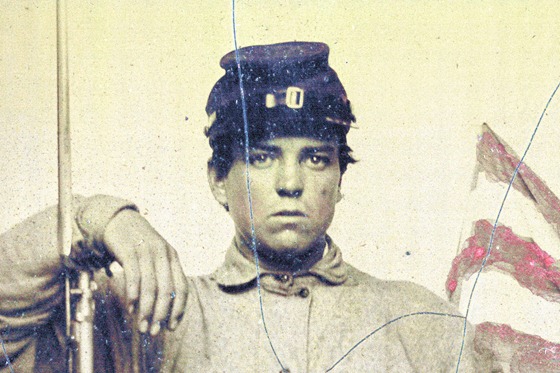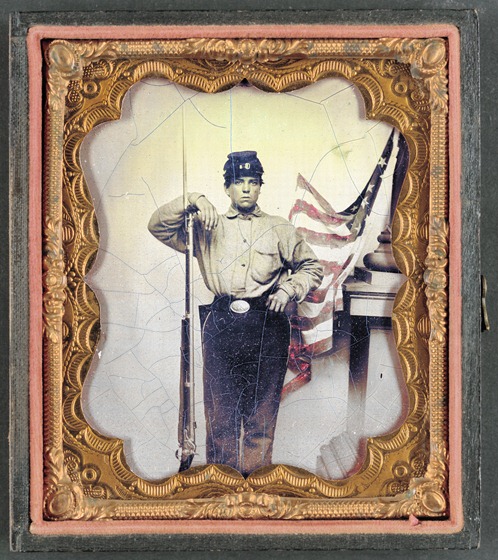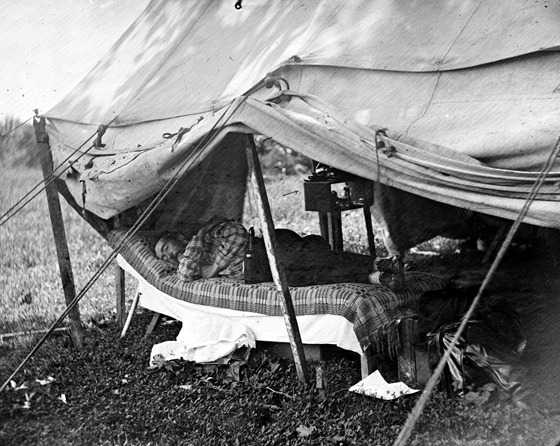August 5th.
About half-past nine, as we got up from the breakfast table, a guerrilla told us the ram Arkansas was lying a few miles below, on her way to cooperate with Breckinridge, whose advance guard had already driven the pickets into Baton Rouge. Then we all grew wild with excitement.
Such exclamations! such delight that the dreadful moment had at last arrived! And yet you could see each stop as we rejoiced, to offer up a prayer for the preservation of those who were risking their lives at that moment. Reason, and all else, was thrown aside, and we determined to participate in the danger, if there was any to be incurred. Mother threatened us with shot and shell and bloody murder, but the loud report of half a dozen cannon in slow succession only made us more determined to see the fun, so Lilly Nolan and Miss Walters got on horseback, and Phillie, Ginnie, Miriam, and I started off in the broiling sun, leaving word for the carriage to overtake us. When we once got in, the driver, being as crazy as we, fairly made his horses run along the road to catch a glimpse of our Ram. When, miles below, she came in sight, we could no longer remain in the carriage, but mounted the levee, and ran along on foot until we reached her, when we crossed to the outer levee, and there she lay at our feet.
And nothing in her after all! There lay a heavy, clumsy, rusty, ugly flatboat with a great square box in the centre, while great cannon put their noses out at the sides, and in front. The decks were crowded with men, rough and dirty, jabbering and hastily eating their breakfast. That was the great Arkansas! God bless and protect her, and the brave men she carries.
While there, a young man came up, and in answer to Phillie’s inquiries about her father — who, having gone to town yesterday to report, being paroled, had written last night to say no passes were granted to leave town — the young fellow informed her so pleasantly that her father was a prisoner, held as hostage for Mr. Castle. Poor Phillie had to cry; so, to be still more agreeable, he told her, Yes, he had been sent to a boat lying at the landing, and ran the greatest risk, as the ram would probably sink the said boat in a few hours. How I hated the fool for his relish of evil tidings!
But never mind our wild expedition, or what came of it. Am I not patient! Ever since I commenced to write, the sound of a furious bombardment has been ringing in my ears; and beyond an occasional run to see the shells fly through the air (their white smoke, rather) I have not said a word of it. The girls have all crowded on the little balcony up here, towards town, and their shrieks of “There it goes!” “Listen!” “Look at them!” rise above the sound of the cannon, and occasionally draw me out, too. But I sit here listening, and wonder which report precedes the knocking down of our home; which shell is killing some one I know and love. Poor Tiche and Dophy! — where are they? And oh, I hope they did not leave my birdie Jimmy to die in his cage. I charged them to let him loose if they could not carry him. Dophy will be so frightened. I hope they are out of danger. Oh, my dear home! shall I ever see you again? And the Brunots! Oh, how I hope they are safe. These loud cannon make me heartsick, and yet I am so excited! How rapidly they answer each other! I am told the attack commenced at five this morning, and lasted three hours. Those girls are shouting that Baton Rouge must be on fire, from the volume of smoke in that direction. How they scream as the balls go up, to show it to each other. I think I’ll take a look, too.
We are all going four or five miles through this warm sun to be nearer the scene of action. Any one might know there was no white man on the premises. There is the carriage! Oh, I am so seasick! What will I be before we get back?







 Tuesday, 5th.—At 2 P. M., started forward; soon came to Clinch River; advance guard skirmishing a little some distance out. Saw one Federal prisoner. Clinch River was about one hundred and fifty yards wide; no bridge; ordered to wade through. Now came a ridiculous but laughable scene, 1,800 breechesless men wading in water three feet deep and more, trying to keep dry shirts. One agreed to pay another fifty cents to carry him over; so, mounting on his back, they started in, but before getting half-way across fell, and both went under together. Camped at 10 P. M., four miles from Tazewell.
Tuesday, 5th.—At 2 P. M., started forward; soon came to Clinch River; advance guard skirmishing a little some distance out. Saw one Federal prisoner. Clinch River was about one hundred and fifty yards wide; no bridge; ordered to wade through. Now came a ridiculous but laughable scene, 1,800 breechesless men wading in water three feet deep and more, trying to keep dry shirts. One agreed to pay another fifty cents to carry him over; so, mounting on his back, they started in, but before getting half-way across fell, and both went under together. Camped at 10 P. M., four miles from Tazewell.



